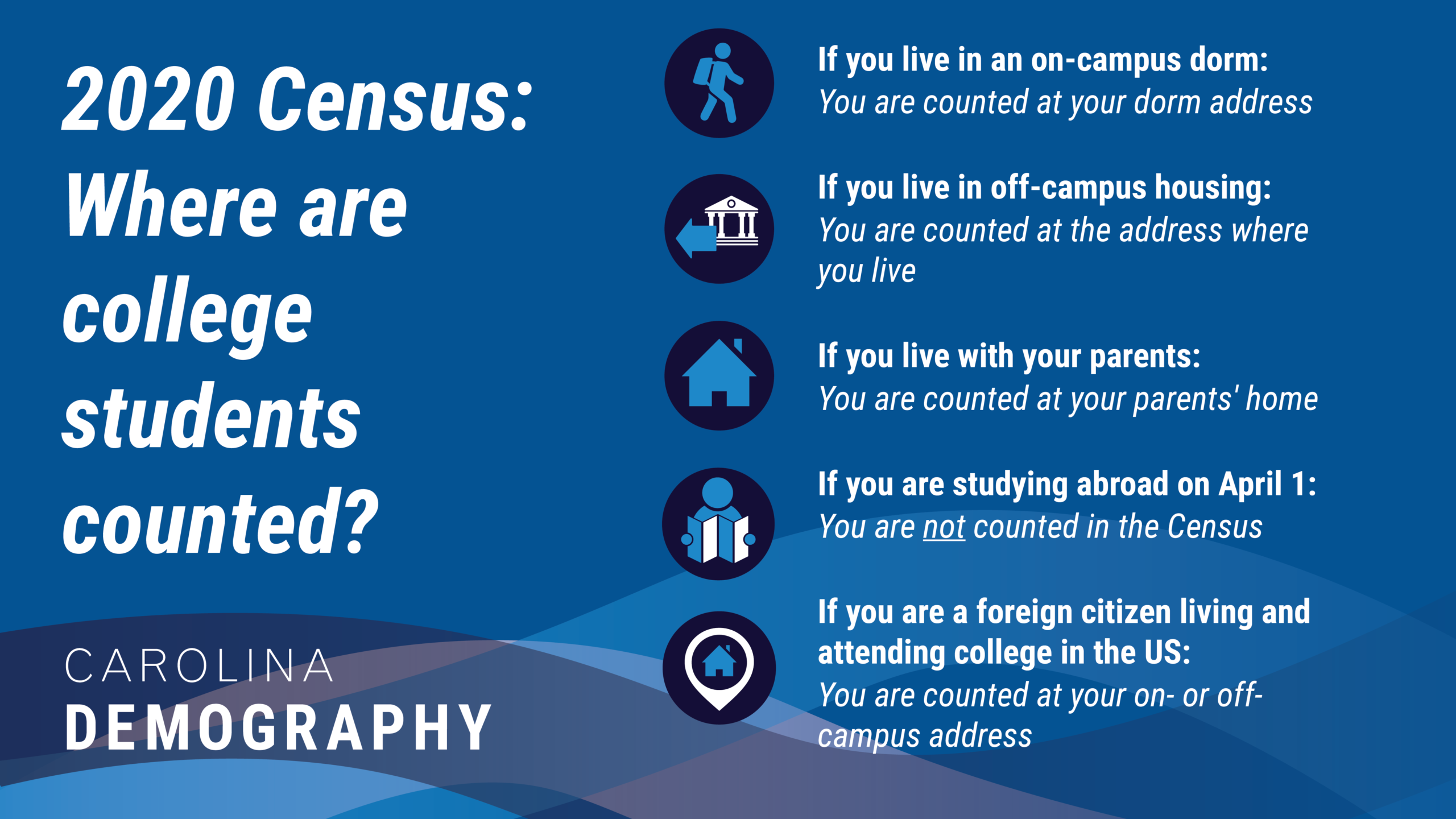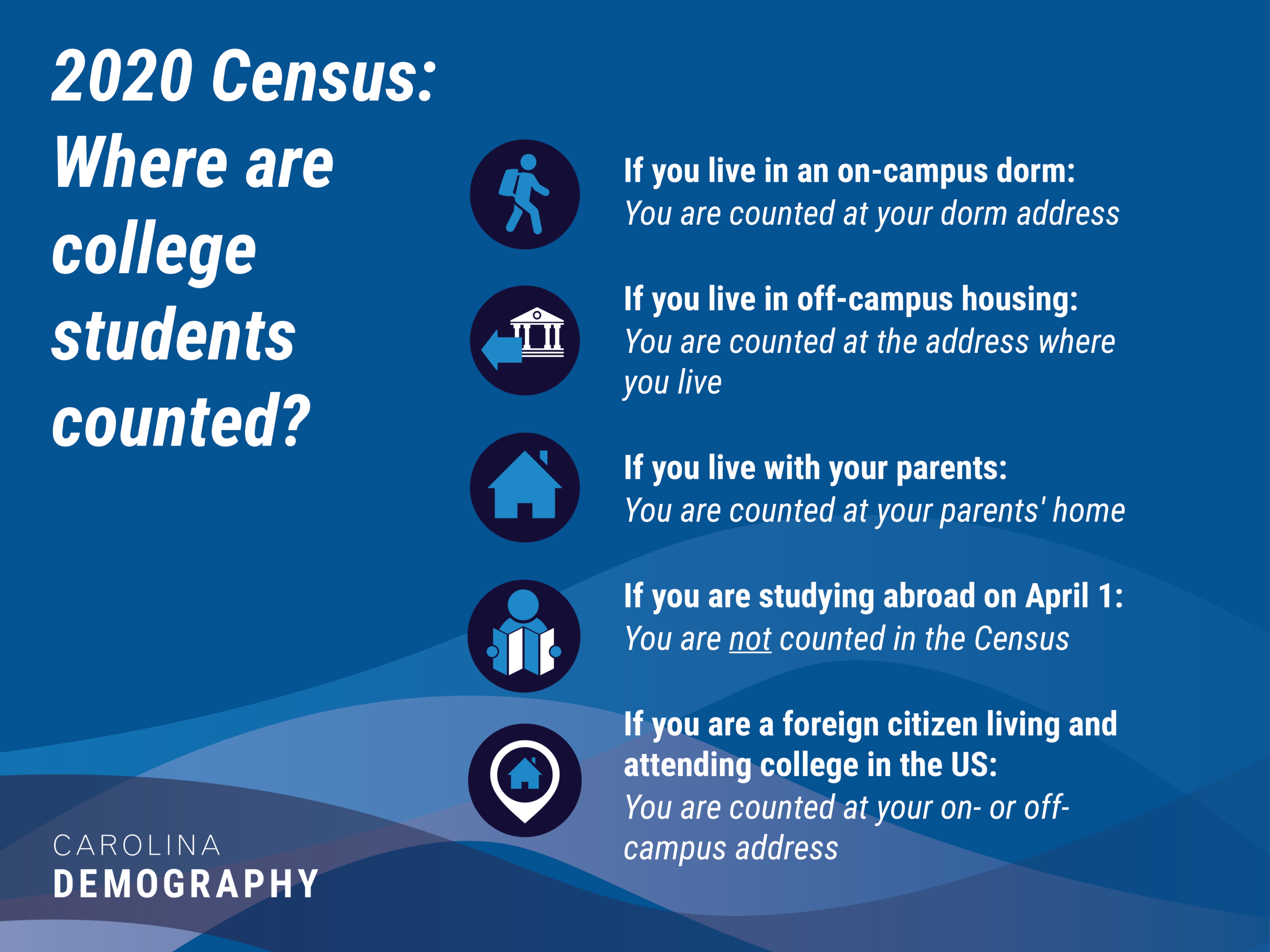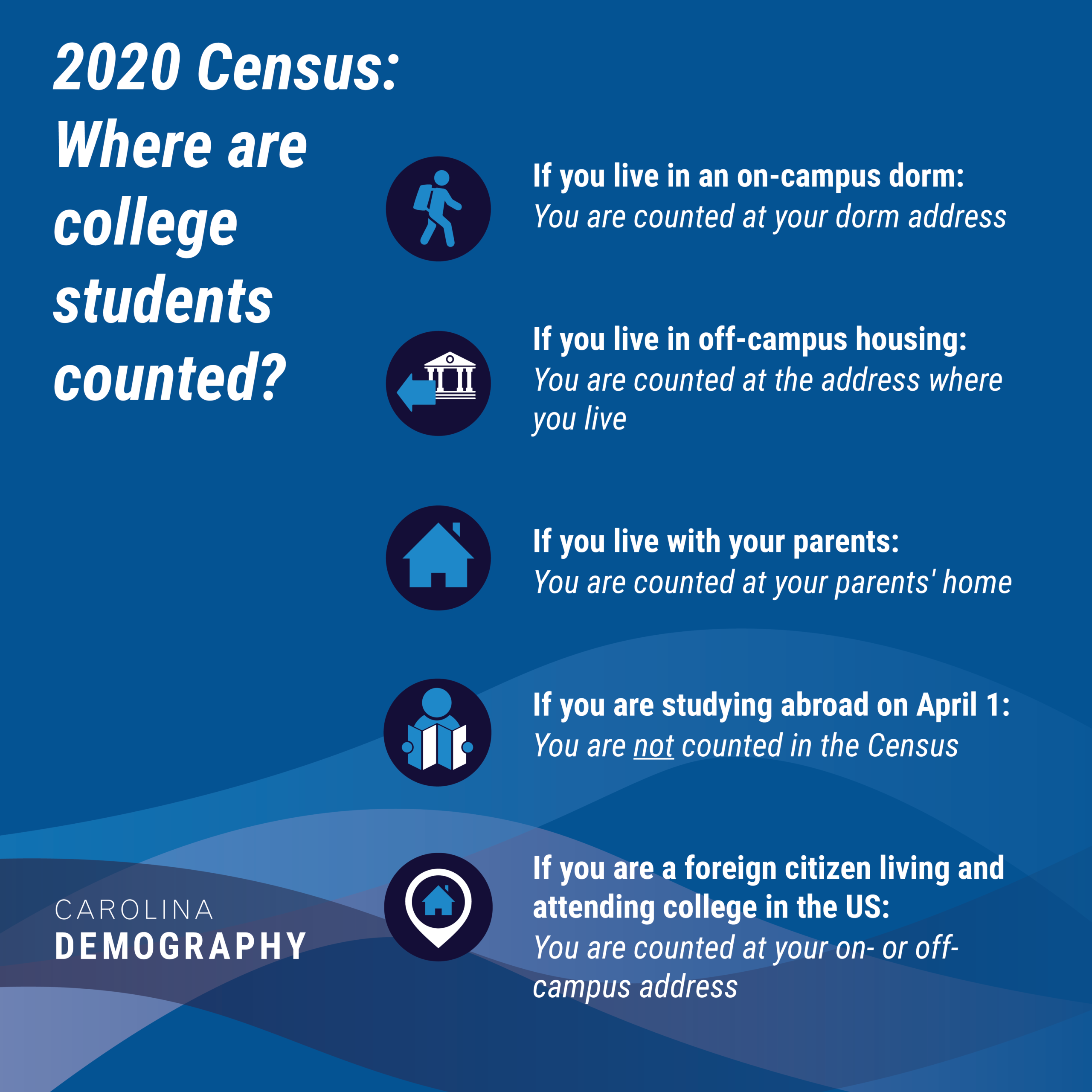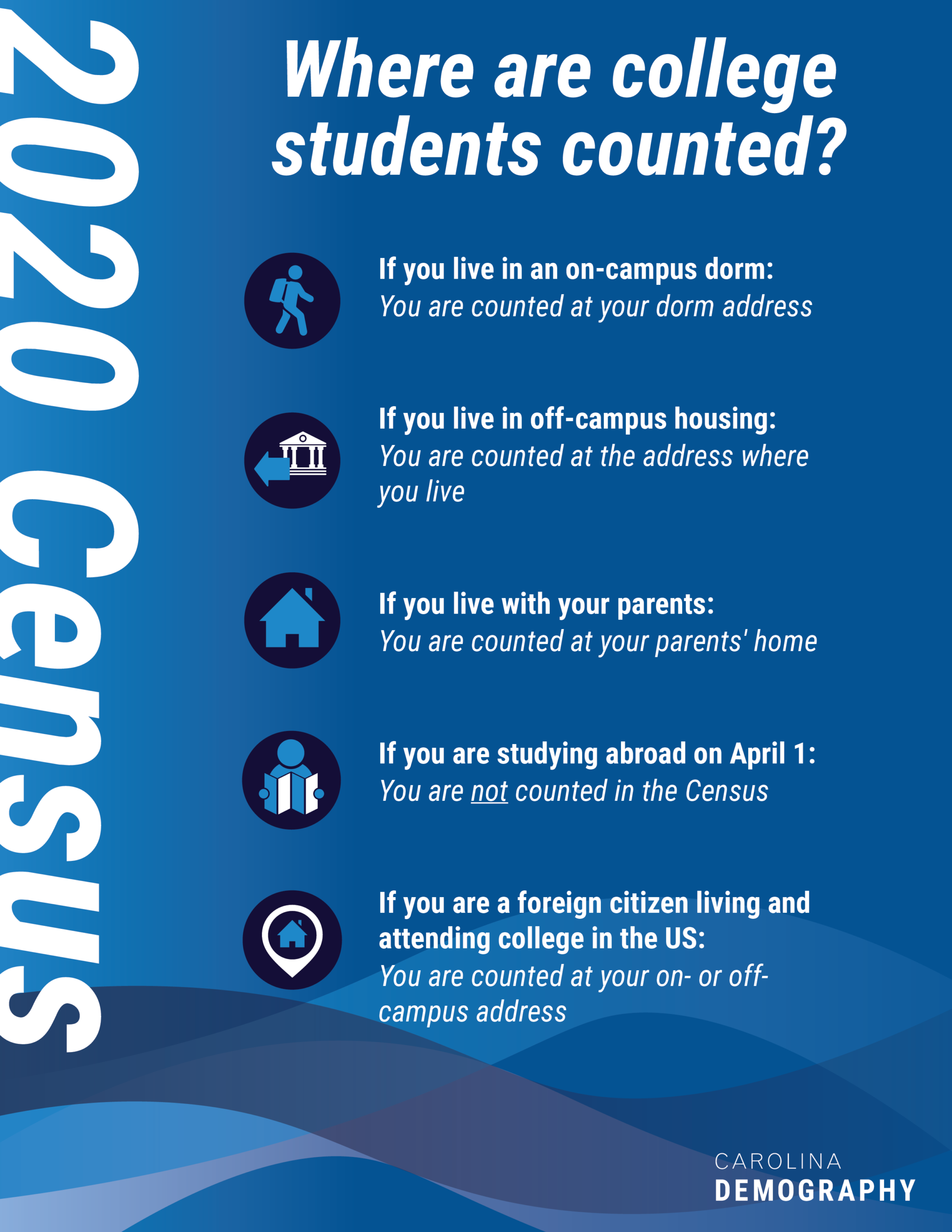Where are college students counted for the 2020 Census?

We have updated this post with new information on how to count students if campuses are closed due to public health concerns.
Across North Carolina, there are many communities impacted by the presence of a college or university. Where will these students be counted in the 2020 Census: at their school address or at their parents’ home?
According to the Census Residence Criteria, students are counted at their “usual residence” or where they live and sleep “most of the time.” This means that college students are counted at their college address, either on or off campus. They should only be counted at their parents’ home if they are living and sleeping there most of the time.
The Census Bureau provides detailed information on the Residence Criteria governing college students in section C.10.a-f of the census rules. Specifically:
COVID-19 UPDATE: College students who typically live away from their family’s home IN DORMS and are no longer on campus on/before April 1, due to guidance from the school or public health authorities, do not need to respond to the Census. They will be counted at their college address by their college or university through the Group Quarters Enumeration process. (Sources: Census Bureau guidance on Coronavirus; Census Bureau via Hansi Lo Wang, NPR; Population Reference Bureau.)
COVID-19 UPDATE: College students who live IN OFF CAMPUS HOUSING and are no longer on or near campus on/before April 1, due to guidance from the school or public health authorities, should use their off campus address and follow the Census Bureau instructions for Responding to the 2020 Census without a Census ID number.
COVID-19 UPDATE: College students who are STUDYING ABROAD abroad at the time of the census are usually not counted in the census at all. However, many students have come home early due to COVID-19. Any students who have returned to the U.S. by April 1, 2020, can be counted at the place considered their “usual residence” as of Census Day, which often is their parents’ home.
What did this look like in Chapel Hill in 2010? Students living in on- or off-campus housing that was owned, leased, or managed by UNC-Chapel Hill were counted under the Census Group Quarters Enumeration operation.
In Chapel Hill, there were 8,457 individuals living in college or university student housing in 2010—less than one third of the 27,748 total student enrollments at UNC-Chapel Hill in spring 2010. The other 19,291 UNC students—if they were not studying abroad—were counted at the off-campus residence where they lived and slept most of the time.
College students are counted where they live and sleep most of the time on April 1, 2020. That means:
| Where college students live | Where college students are counted |
| If you live in an on-campus dorm | You are counted at your dorm address** |
| If you live in off-campus housing | You are counted at the address where you live** |
| If you live with your parents | You are counted at your parents’ home |
| If you are studying abroad on April 1 | You are not counted in the Census |
| If you are a foreign citizen living and attending college in the US | You are counted at your on- or off- campus address |
**Note: This is where you are counted even if you are not on or near campus on April 1, 2020 due to COVID-19-related guidance from the school or public health authorities. Students in off-campus housing who do not receive their census packets before leaving should do a non-ID response to the census; they should report information on the census for their college address and “household.” |
|
The Census Bureau is encouraging eResponse for Group Quarters enumeration, however, there may be other options available for universities, such as having RAs accompany Census workers. Specific questions about college group quarters enumerations and the potential to report selective data through eResponse should be directed to your local Census regional office.




Need help understanding population change and its impacts on your community or business? Carolina Demography offers demographic research tailored to your needs.
Contact us today for a free initial consultation.
Contact UsCategories: Carolina Demographics, Census 2020
Tags: 2020 census

The Center for Women’s Health Research (CWHR) at the University of North Carolina School of Medicine released the 12th edition of our North Carolina Women’s Health Report Card on May 9, 2022. This document is a progress report on the…

Dr. Krista Perreira is a health economist who studies disparities in health, education, and economic well-being. In collaboration with the Urban Institute, she recently co-led a study funded by the Kate B. Reynolds Foundation to study barriers to access to…

Our material helped the NC Local News Lab Fund better understand and then prioritize their funding to better serve existing and future grant recipients in North Carolina. The North Carolina Local News Lab Fund was established in 2017 to strengthen…
Your support is critical to our mission of measuring, understanding, and predicting population change and its impact. Donate to Carolina Demography today.